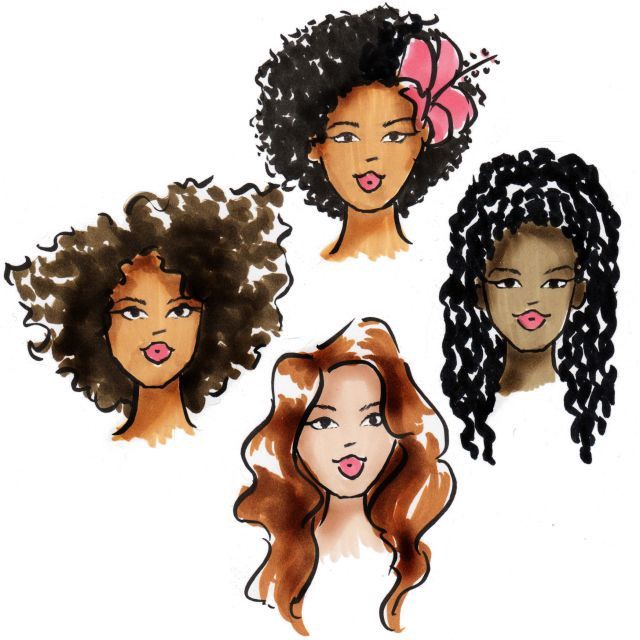Black Labour, White Markets and Brown Wallets: The Shea Moisture Scandal
This week’s post was written by Justina, from TuWezeshe Akina Dada leading partner, FORWARD.

In Burkina Faso, Shea Butter is known as ‘Women’s Gold’. In the diaspora it’s better known as hair crack. Made from fat extracted from the fruit of the African Shea tree, shea butter has been used for centuries to treat and protect the many varieties of black women’s hair (and skin). So it’s not surprising that when Richelliu Dennis branded his Sierra Leoneon grandmother’s concoction and sold it on the streets of Harlem in the early 90s, ‘Shea Mositure’ soon became a house and hair necessity. Black women, understandably, were the brands’ greatest consumers and its most loyal supporters. From sharing the product in homes and salons, to endorsing, advocating and freely publicising it in the Youtube era of beauty vloggers, Shea Moisture became a model for successful black business, thriving in an industry dominated by products for white and Caucasian styled hair.
Enter April 25th 2017. Shea Moisture unveil a new campaign entitled ‘Hair Hate’, positioning themselves as the brand to help women fall back in love with their hair. Considering Natural Hair is trending, it was an apt advertising move. Yet the women they were appealing to were not their loyal 4c textured or otherwise supporters but white women, whose hair and beauty have always, and uncritically too, been the standard of beauty. White women whose hair type is catered for in every outlet and advert imaginable. At least that’s how Black Twitter saw it. The uproar across social media prompted social commentators, home vloggers and writers to clap down on the business, leading to Shea Moisture issuing a formal apology and pulling the advert within hours.
As a leading brand for black business, Shea Moisture relies on its core funders, black women, our money and by extension our labour, to exist. Too often, when something becomes a successful commodity, the labour and love of minority people is capitalised on, consumed, and abused leaving minorities, in this case black women, left to eat dust while their own things are appropriated with no mention of their existence. While I agree the advert wasn’t just tasteless but insensitive, this trend of appropriation and the de-centering of black women isn’t new. In fact it is a well practiced activity that will continue unless the following things are addressed:
- Black business exists within white markets.
We cannot deny that, through various tactics, the current global capitalist system continues, if not thrives, on the oppression and exploitation of black and brown bodies. However for black businesses or organisations to have credibility (read: get funding), they have to play the system, and that means appealing to (and incorporating) white people, both at a consumer level and leadership level. Why? Because that’s where the money is, and therefore in many ways the skills, visibility, employability and, you guessed it, money. It’s no wonder then that Shea Moisture’s VP of Marketing and much of their staff are white. Whether we like it or not, the racial dynamics of the capitalist system means that white people, on the whole, have the greatest purchasing power because they have the greatest amount of capital . For any business to expand it has to appeal to the demographic that has money, so it makes strategic sense for Shea Moisture to appeal to an untapped clientele.
2. Black people drive culture — so why don’t we dictate who has visibility?
Whether it’s the latest dance craze, meme, super star or shutting down the adverts of international corporations (looking at you Pepsi), black people — from the continent through to the diaspora and beyond — drive, innovate and dictate global culture. It’s what makes the appropriation of our work so painful, frustrating and lucrative. But here’s the thing — Shea Moisture released two adverts. That’s right. 2.
The first advert displayed a glorious array of black women, both in skin tones, hair textures backgrounds and beauties. The second advert targeted their new audience — white women. Now, I think a smarter move would have been for Shea Moisture to integrate the two adverts –e.g. with a ratio of 3:1 or 2:2 of women of colour to white women. In this way they could have shown the universality of their product without erasing black women. Not only would this have been less tone deaf, but it might have opened the door for other labels like Garnier and L’Oreal etc. to start appealing to black audiences and diversifying their products while amplifying our presence. We won’t know, but what we do know is that Black twitter made an advert about white women using Shea Butter go viral. We did that. We could have made the other advert go viral #blackgirlmagic, because let’s be honest, how many white women even saw or cared about the advert till it started trending? I see the power in calling it out (and getting it canceled), it shows that consumers can still hold markets accountable, but this leads me to my final point
3. Brown Wallets always want a bargain

Hours after the scandal had whipped up a frenzy, Shea Moisture not only pulled the advert, they did a 50% sale on all products. HALF-PRICE on EVERYTHING (while supplies last). Earlier in the day, friends and strangers up and down my time line where planning to boycott and shutdown Shea Moisture, but once that sale was released…no comment. Actually no, that is a huge comment. Since the civil rights era and earlier, black people have shown their ability to shut things down and make those in charge sit up and sometimes even stand down. From boycotting buses to voting in a black president, our voices are loud and strong. Except when it comes to our wallets. Considering the capitalist system is racist, it can often feel like as black people with less purchasing power, we can’t afford to jeopardise our finances for our ethics. But that’s how African Americans won the vote isn’t it? If we’re serious about the private sector not cashcropping our cain-rows, then we need to not buckle at the loose change that falls our way. I wouldn’t be surprised if the money Shea Mositure lost in pulling the advert will be made back in the next 48hrs while consolidating their supporter base all over again by offering weak platitudes for forgiveness. Moral of the story — Bargain Hunting doesn’t lead to social change.
It is frustrating that FUBU (for us by us) -style brands, role-models and movements which historically and presently gave/give us visibility by creating spaces where we feel safe, valued and seen, seem to sell out (or buy-in) for financial gain. I doubt Shea Moisutre had a malign intention in the advert and in a way, is it wrong of them to diversify their consumer base? From a strategic sense, perhaps the only way we can reverse the dynamics of capitalism is to either dismantle the system, or run it, and the latter requires us having that cheddar. Yet if the private sector, black businesses included, is playing a game we don’t like, then we — the conscious, conscientious and financially capable black community- need to reflect, consolidate and execute our power effectively to change the game. We may be marginalised and disempowered via the traditional institutions and corridors of power, but as a social community we shake things up in a drastic way.
So let’s be vigilant. We don’t need twitter warriors creating a storm about us being invisible, while in the process increasing the visibility of those that are already in the spotlight. If we can shut things down, then lets also send things up, and make, in this case, our presence go viral. There’s also the question of grace. Sometimes we get things wrong, sometimes in a minor way, sometimes in a HUGE way. Sometimes we need to correct, even discipline and forgive (that hair crack is essential after all). BUT, if we the consumers truly want to hold the private sector to account in a way that affects them, then we need to be bold enough to do that with our words and our wallets (there are plenty of brilliant black hair products out there who need the investment!). If black business exists in white markets, then lets make sure our brown wallets are lined with our ethics, and our money does the talking, not just the spending.

